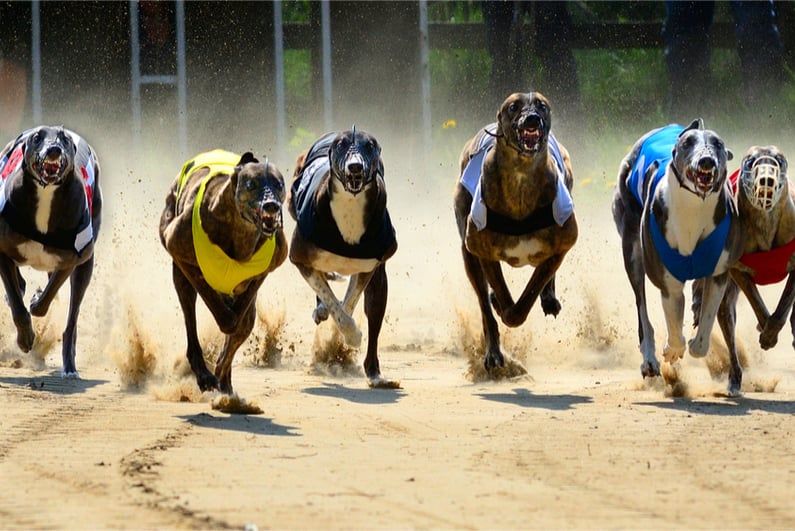Attitudes are changing across the world when it comes to animal-related sports. The likes of horse and dog racing have been popular sports for many years.
However, many people are calling for an end to these activities, in the belief that the industry exploits these animals unfairly.
The horse racing industry is big business in the UK and Ireland in particular. For example, a study in 2010 by Sport Ireland shows how the Irish economy benefited by about $2bn that year, which was 1.4% of its GDP.
US attitudes
Over the past couple of decades, there has been a steady decrease in the number of animal racing tracks across the US.
Many of the tracks currently in operation need to rely on other sources of revenue to stay afloat. Often they will turn into a racino, whereby they have slot machines and video lottery terminals.
Florida has the oldest dog track globally, as well as being one of the biggest. As a result of the US November midterms, 69% of the voters were in favor of a ban on greyhound racing, which will now come into effect from 2020 onwards.
The main reason for the high level of support for the ban was animal welfare concerns. Florida has 7.6m voters, which shows how significant these concerns are.
What does the ban mean?
This vote will send shockwaves through the racing industry. Similar approaches are being taken in other countries. South Africa is trialing whip-free racing, there is a jump racing ban in place in certain Australian regions and there is a lot of pressure on whip racing in Britain.
Greyhound racing has been prominent in the US since the First World War and it was a very popular avenue for betting into the 1980s. However, in recent years, many states have banned it.
Currently, only 17 tracks in the country operate within six states. As a result of the new ban in Florida, this will fall to six tracks in five states come 2020. There has also been a significant decline in greyhound betting revenues over the years, from $33.5bn in 1991 to $200m for 2017.
In recent years, many of the tracks were still holding races to facilitate their slots and card room activities.
Animal rights organizations lobbied hard for this motion. Other states do not hold public ballots on this type of issue, but lawmakers will certainly take note.
It is likely that some voters were in favor of this motion because they wrongfully believe that it will also stop the tracks from offering card games and slots.
Growing global trends
Over the past 10 years or so, there has been a global interest in using animals for sport. Animal cruelty organizations are constantly piling on the pressure on the legislature to make changes.
South Africa has been contemplating allowing dog racing, but is being met with stiff resistance. New South Wales was close to implementing a ban in 2016, while jump horse racing there was banned in 1997. There is still jump racing in Victoria and Southern Australia, but it is no longer a big betting draw.
When the jump racing season approaches each March in the UK, there is a lot of attention on the sector. Stricter rules regarding the use of whips have been popular across Europe and the US.
The organizers of these sports are aware that public tastes and perceptions are changing.
Some defensive moves are being made by the respective stakeholders, but nothing novel has been done. They are failing to capture the attention of the younger generations by not making significant changes.
End of an era in France?
France has long been a great breeder of race horses. The government was looking into the reinvigoration of the racing sector, following a six-month study.
The government brought in a lower rate of VAT for breeders. It is also are lowering taxes, which will allow customers to have better odds without undermining the racing industry.
There are also proposals to completely change the governance system and privatize horse racing betting. Significant funding has been pumped into horse racing in France for many years.
This led to a thriving training and breeding space, as well as high levels of prize money. Despite this, there has not been a similar improvement in customer engagement or on-course interest.
Racing revenues are continually falling. Significant reform is needed to save the industry. If they continue to cater to a small group of stakeholders, then there will be a continual and inevitable decline.




